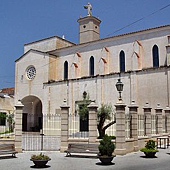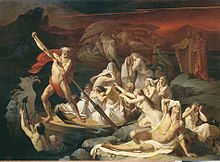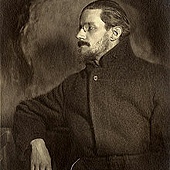 Words
Words
-- inflammation: a condition in which a part of the body becomes red, sore and swollen because of infection or injury 發炎;炎症
--sinusitis: the painful swelling of the sinuses (鼻)竇炎
--bronchitis: an illness that affects the bronchial tubes leading to the lungs 支氣管炎
--convent: a building in which nuns(= members of a female religious community) live together 女隱修院;女修道院

--retreat: a quiet, private place that you go to in order to get away from your usual life 僻靜處;隱居處
--sabbath: in Judaism and Christianity, the holy day of the week that is used for resting and worshipping God. For Jews this day is Saturday and for Christians it is Sunday. 安息日(猶太教定為星期六,基督教定為星期日)
Sabbath or a sabbath is generally a weekly day of rest and/or time of worship observed in Abrahamic religions and other practices. Many viewpoints and definitions have arisen over the millennia. The term has been used to describe a similar weekly observance in any of several other traditions; the new moon; any of seven annual festivals in Judaism and some Christian traditions; any of eight annual pagan
--quest: a long search for something, especially for some quality such as happiness 探索,尋找,追求(幸福等)
-- chalice: (holy grail) a large cup for holding wine, especially one from which wine is drunk in the Christian Communion service 大酒杯;(尤指基督教的)聖爵
-- initiation: the act of somebody becoming a member of a group, often with a special ceremony; the act of introducing somebody to an activity or skill
-- folly: a lack of good judgement; the fact of doing something stupid; an activity or idea that shows a lack of judgement
--epiphany: A manifestation of a divine or supernatural being
(Feeling)
An epiphany (from the ancient Greek ἐπιφάνεια, epiphaneia, "manifestation, striking appearance") is the sudden realization or comprehension of the (larger) essence or meaning of something. The term is used in either a philosophical or literal sense to signify that the claimant has "found the last piece of the puzzle and now sees the whole picture," or has new information or experience, often insignificant by itself, that illuminates a deeper or numinous foundational frame of reference.
(Holiday)
Epiphany, (Koine Greek: ἐπιφάνεια, epiphaneia, "manifestation", "striking appearance", or Theophany, (Ancient Greek (ἡ) Θεοφάνεια, Τheophaneia,[2] meaning "vision of God",[3]which falls on January 6, is a Christian feast day that celebrates the revelation of God the Son as a human being in Jesus Christ. Western Christians commemorate principally (but not solely) the visitation of the Biblical Magi to the Baby Jesus, and thus Jesus' physical manifestation to the Gentiles. Eastern Christians commemorate the baptism of Jesus in the Jordan River, seen as his manifestation to the world as the Son of God.
 Others
Others
-- She was the old flame of my in high school.
-- attend + bazaar
--Charon by the River Styx  ferryman
ferryman
In Greek mythology, Charon or Kharon (English pronunciation: /ˈkɛərɒn/, /ˈkɛərən/; Greek Χάρων) is the ferryman of Hades who carries souls of the newly deceased across the rivers Styx and Acheron that divided the world of the living from the world of the dead. A coin to pay Charon for passage, usually an obolus or danake, was sometimes placed in or on the mouth of a dead person.[1] Some authors say that those who could not pay the fee, or those whose bodies were left unburied, had to wander the shores for one hundred years. In the catabasis mytheme, heroes — such as Heracles, Orpheus, Aeneas, Dionysus and Psyche — journey to the underworld and return, still alive, conveyed by the boat of Charon.

-- 1922 Modernism
Modernism, in its broadest definition, is modern thought, character, or practice. More specifically, the term describes the modernist movement, its set of cultural tendencies and array of associated cultural movements, originally arising from wide-scale and far-reaching changes to Western society in the late 19th and early 20th centuries.
Modernism was a revolt against the conservative values of realism. Arguably the most paradigmatic motive of modernism is the rejection of tradition and its reprise, incorporation, rewriting, recapitulation, revision and parody in new forms. Modernism rejected the lingering certainty of Enlightenment thinking and also rejected the existence of a compassionate, all-powerful Creator God.
(李昂 : 殺夫 / 白先勇: 台北人)
-- promise: made  kept
kept  broken
broken
--feels shame on himself
--James Augustine Aloysius Joyce (2 February 1882 – 13 January 1941) was an Irish novelist and poet, considered to be one of the most influential writers in the modernist avant-garde of the early 20th century. Joyce is best known for Ulysses (1922), a landmark novel which perfected his stream of consciousness technique and combined nearly every literary device available in a modern re-telling of The Odyssey. Other major works are the short-story collection Dubliners (1914), and the novels A Portrait of the Artist as a Young Man (1916) and Finnegans Wake (1939), and his complete oeuvre includes three books of poetry, a play, occasional journalism, and his published letters.


 留言列表
留言列表


